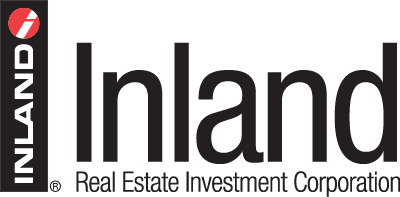Investment property owners using a 1031 exchange to sell property and defer capital gains tax and depreciation recapture are well aware of the 180-day replacement property timeline. Unfortunately, it’s not uncommon for issues to arise in an exchange that can prevent an investor from completing their exchange on time.
For example, an investor may have properly identified a replacement property within the allotted 45-day period following the sale of their relinquished property but faced challenges closing on a replacement property within the 180-day timeline. The investor may have been unable to secure financing, or a property inspection revealed significant structural damage to the property, or the seller may have backed out.
In these situations, is there any potential relief for the investor that could save their exchange? Possibly.
Qualified Opportunity Zones to the Rescue?
You may be familiar with Qualified Opportunity Zones (QOZ), which are investment programs signed into law as part of the 2017 Tax Cuts and Jobs Act that offer investors certain tax-deferral benefits. By investing in QOZ funds, investors participate in the development of economically distressed communities throughout the U.S. while enjoying the opportunity to defer capital gains tax on the sale of certain asset types through December 31, 2026.
Additionally, if the investor holds their interest in the QOZ fund for at least ten years, they may be able to permanently exclude any gain resulting from a qualifying investment when it is sold.
QOZ Funds and 1031 Exchanges
1031 exchanges and QOZ funds are both tax-advantaged investment strategies, but there are differences that generally appeal to different investors.
1031 exchanges offer investors the opportunity to defer capital gains tax and depreciation recapture on the sale of real estate investment property while QOZ funds offer investors the opportunity to defer capital gains on the sale of virtually any asset class (through December 31, 2026), and the potential to eliminate gains on the QOZ fund if held for ten years or more.
Subsequently, 1031 exchanges appeal to real estate investors, and QOZ funds are suitable for a much broader audience of tax-savvy investors. Yet, there may be instances where a 1031 exchanger may consider using a QOZ fund. That could occur when they cannot close on their replacement property within the allotted 180 days for the reasons mentioned earlier.
Saving Some Tax Benefits
An investor who misses the 180-day deadline for a 1031 exchange may be able to reinvest their gains in a QOZ fund and retain some tax-deferral benefits (albeit not for as long as they could have with a 1031 exchange). And as mentioned, if they hold their QOZ investment until it liquidates or for ten years, whichever comes first, they may have the added benefit of eliminating capital gains tax on any appreciation in the QOZ fund.
180 or 360
However, the question arises about how the 180-day reinvestment timeline for a 1031 exchange and the 180-day reinvestment timeline for a QOZ fund investment work together. Do they run concurrently or consecutively? The answer may depend on what time in a calendar year the exchange is deemed to have failed.
For example, when an exchange straddles a calendar year and the investor takes receipt of the proceeds from the failed exchange in the ensuing year, IRC Section 453 states that the investor has recognized the gain at that point. Since QOZ fund investing rules allow investors to take immediate receipt of proceeds from an asset sale without needing a Qualified Intermediary to hold the proceeds in escrow, the investor should have the full 180 days to invest in a QOZ fund.
The situation is cloudier when the 180-day periods occur over similar periods in the same calendar year. Some tax experts suggest there is a reasonable basis to suggest the same “consecutive timelines” approach would apply for failed exchanges occurring in a single year.
If you have clients who own investment property and are considering a sale using a 1031 exchange, you can educate them on an alternative option should they encounter any problems, and their exchange fails.
Visit The Inland Academy for additional resources on Qualified Opportunity Zone Funds and DST 1031 exchanges, and register for our Due Diligence Marketplace to view our current offerings.




